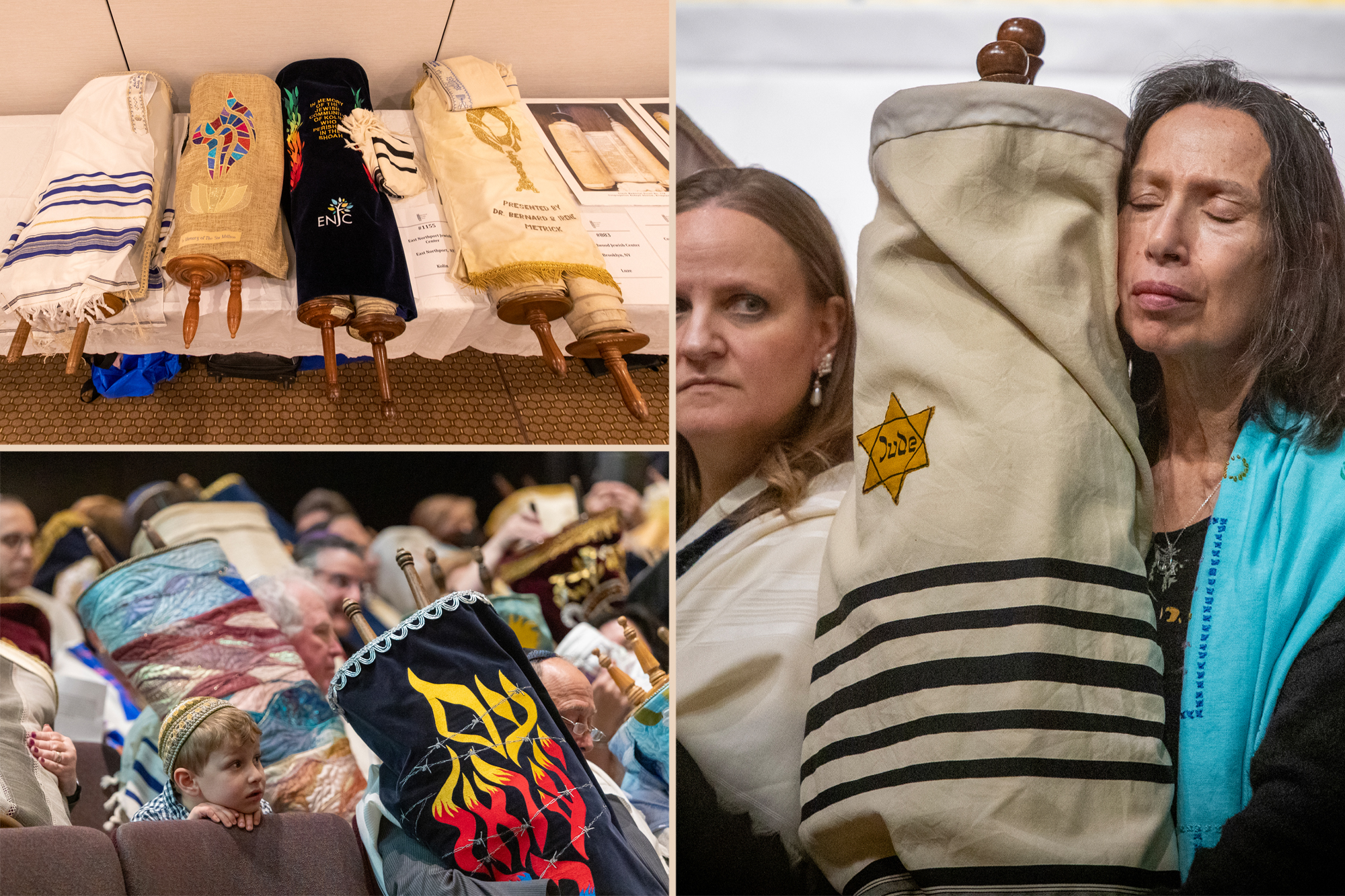
Sixty historic Torahs were featured in a procession at an Upper East Side synagogue Sunday to celebrate the salvaging of more than 1,500 of the religious artifacts from Nazi-occupied Prague.
Representatives from Jewish temples across the tri-state area gathered at the Temple Emanu-El Streicker Center in Manhattan to honor the Torahs and participate in Jewish prayers, songs and speeches imploring the world to reflect on antisemitism, particularly during the Mideast war.
“Even as the world changes around us, and we are painfully aware of sudden surge in antisemitism, we stand taller as Jews, we identify more proudly, and we hold the Torah closer,” said Rabbi Amy Ehrlich of Temple Emanuel.
The Torahs, collectively known as the Memorial Scrolls Trust, originated in Jewish communities across the Czechoslovakian region from the 1200s through to the early 20th century.
The religious scrolls were looted by the Nazis along with other valuable items from those communities when the area was invaded and occupied by Germany in World War II — but were miraculously left in storage in Prague throughout the war.
Not all of the Torahs made it through the looting clean: Some were burned, riddled with bullet holes, blood-stained, and in one instance, even contained a hand-scrawled note reading, “Please remember us.”
When the scrolls were finally recovered, some of their rescuers said they reminded them of corpses and smelled like death.
“Each scroll, more than a thousand of them, was wrapped in polythene,” said Philippa Bernard of Westminster Synagogue in London. “I can only say it was the smell of death.”
The Torahs had wasted away in a storage facility in Prague for almost two decades, till 1964, when the cash-strapped Czech government sold the scrolls to a London art collector, who then passed them to Westminster Synagogue for keeping and restoration.
In the years since, the scrolls have been loaned to synagogues around the world, where they are celebrated as symbols of Jewish persecution — and perseverance — in the face of generations of horrid violence.
“The MST Czech Torah collection underwent a similar experience to the Jews. They were collected, they were numbered, they were kept in bad conditions, and their health deteriorated,” said Lois Roman, a trustee of the scroll collection.
“Unlike the Jews, most of the scrolls survived. Now it is their turn to play a role in retelling the story. We have and should use these Torah scrolls for that purpose. My biggest wish is that Holocaust education will become redundant, but sadly we’re living in a time when it is even more necessary.”














